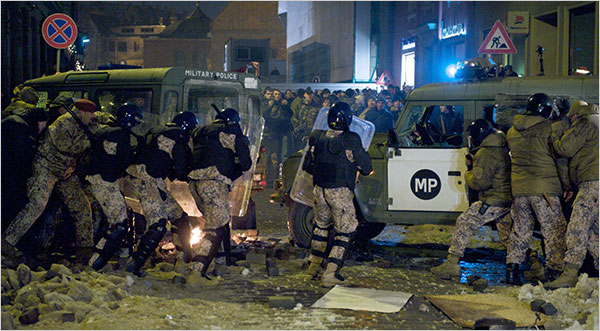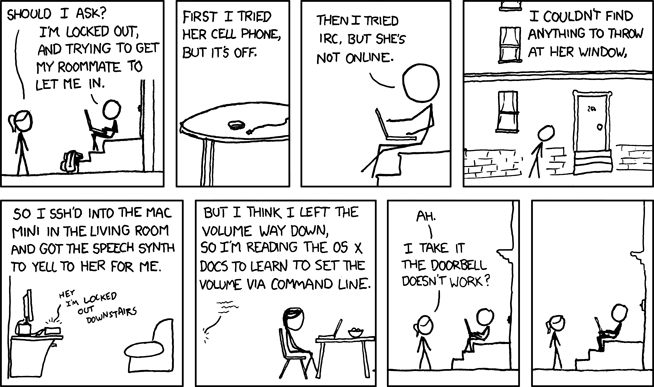"Whether Ruth Madoff knew of her husband’s scheme or whether she didn’t are two unnerving possibilities."
That's the lead on the front page of the NYTimes this morning pointing to this article.
What a sentence! We can blame it squarely on the front-page-online editors, because it isn't in the article; I found in the article a sentence that has almost exactly the form I was going to suggest as the right way to say what they obviously intended: "In the social circles where the couple once traveled, both possibilities are unnerving — that Ruth Madoff was in on this, or that she wasn’t.", using that instead of whether. I would also have used and instead of or, given that they've spoken of "both possibilities". (I guess I would use or if they had written "either possibility is unnerving". But I know that we tend to be relaxed about and's and or's, so that part doesn't surprise me.)
I know that things like this often happen, but I never saw such an extreme example — the two whether-clauses presented as alternatives are actually, on standard analyses going back to Karttunen's 1977 article in the first issue of Linguistics and Philosophy, synonymous, since each is implicitly disjunctive with its negation and they are negations of each other.
I actually didn't understand what they had in mind until I got to the end of the sentence. Initially I thought it was a much more benign phenomenon of just inserting a second 'whether', and that this was going to be what Zaefferer calls an 'unconditional' — e.g. "Whether Ruth Madoff knew of her husband’s scheme or whether she didn’t, she may still be considered culpable …", equivalent to "Whether she knew or not, she may still …". So this is not just a matter of stylistics — there's just no way to literally read the first part of the sentence as an itemization of the two unnerving possibilities.

